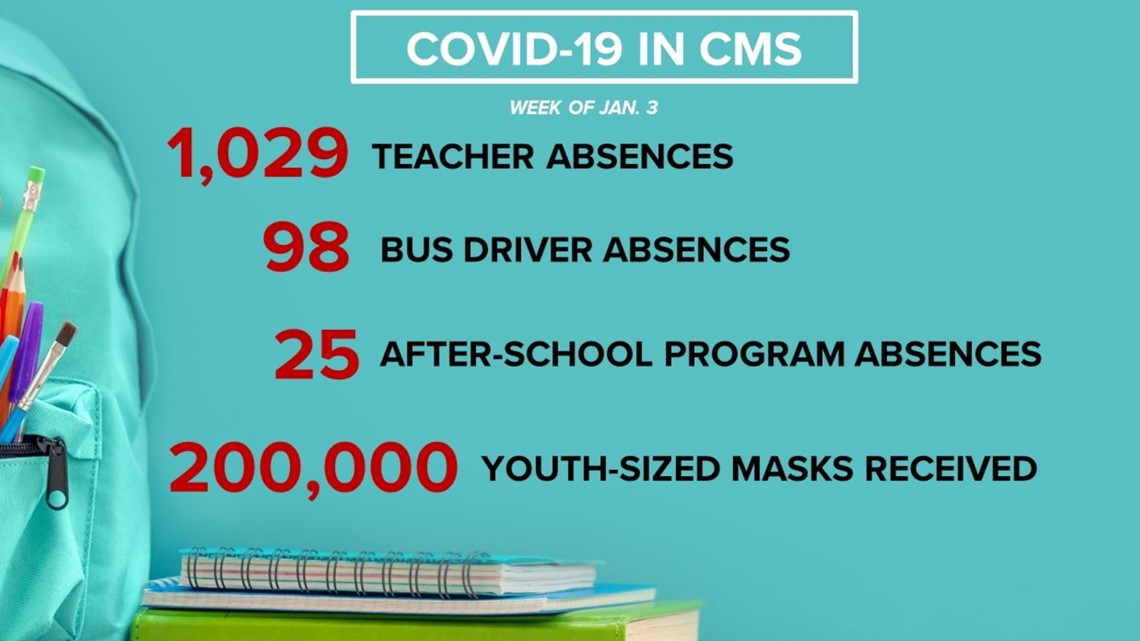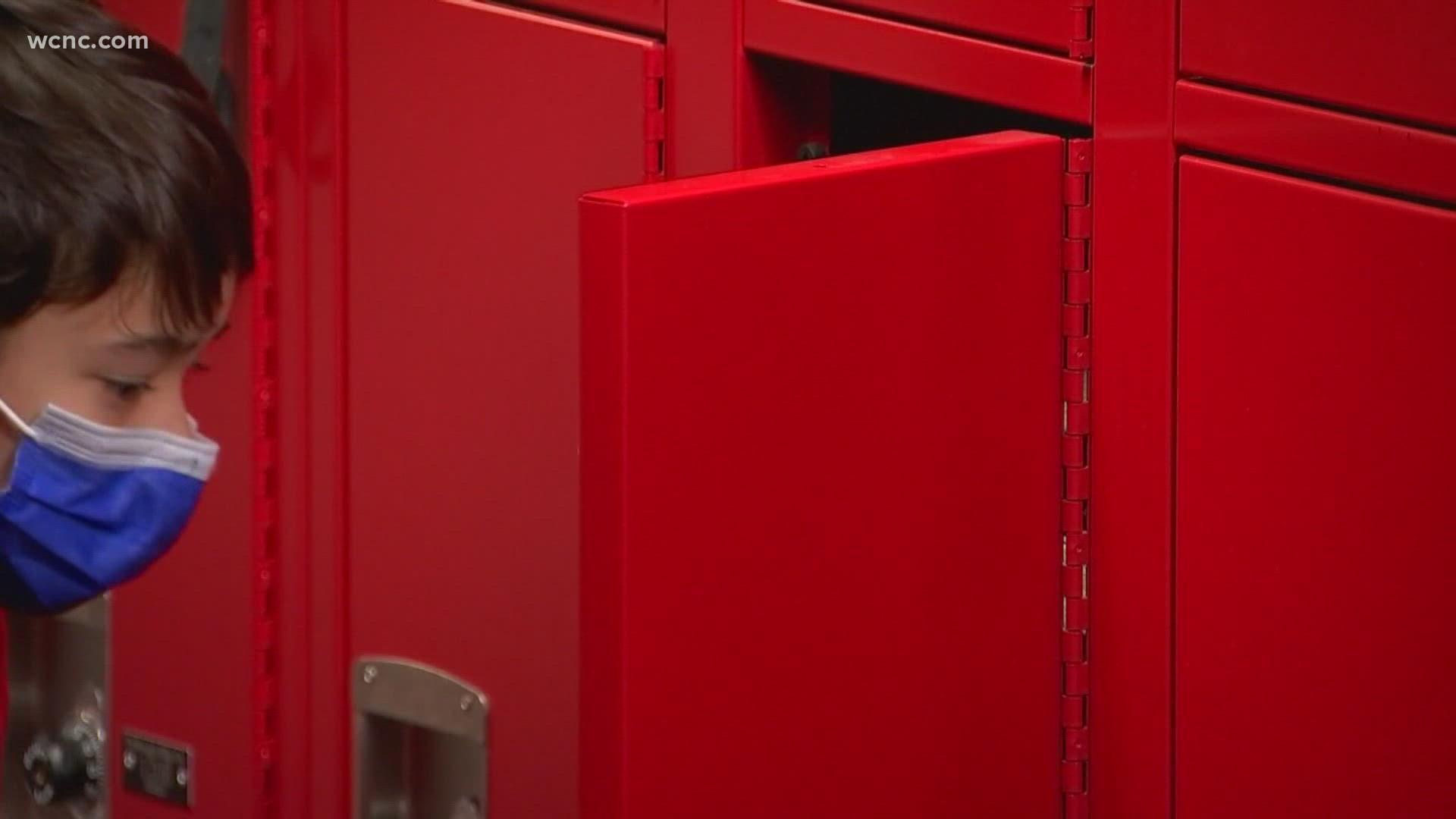RALEIGH, N.C. — The North Carolina Department of Health and Human Services is making it easier for vaccinated and masked students to stay in school after COVID-19 exposures.
The department made changes to its “Test to Stay” guidance for schools with universal masking policies and it made changes to what schools should do when vaccinated students and teachers are exposed or test positive.
The new guidance in the Strong Schools NC Toolkit, to COVID exposures in schools, regardless of masking policy, will now state:
- Students who are fully vaccinated do not need to quarantine if exposed to COVID-19 in school.
- Anyone 18 and older who is fully vaccinated, and has received a booster shot, does not need to quarantine if exposed to COVID-19 in school.
If you’re not vaccinated, and not showing symptoms, you still need to quarantine for five days and wear a mask for an additional five days, after an exposure.
"We continue, as I mentioned, to exclude quarantines if your exposure is a mask on mask exposure, and we will also be consistent in the exclusion from keeping you quarantined if you have a documented infection in the past 90 days," Dr. Elizabeth Tilson, North Carolina Department HHS Chief Medical Officer, said.
If your child is in a school district with a universal masking policy, they’ll also have a better chance of staying in person regardless of vaccination status.
The new guidance for 'Test to Stay' programs in schools that have universal masking requirements, will now state:
- Students, regardless of vaccination status, do not need to be excluded from school after a brief unmasked exposure. This applies to activities like lunch or P.E.
- Students need to get tested on the day they're notified of the exposure and as close to five days as possible after exposure and wear a mask in school settings.•
- If tests are limited, exposures during athletics should be prioritized since it’s the highest risk of unmasked exposure.
- This applies to exposures in or out of school but does not apply to in-home exposures.
When students returned to classes after winter break unvaccinated students, with an unmasked exposure, could only return to school after five days of quarantine if they had no symptoms. Then it was followed by five days of strict mask use.


A study with North Carolina schools shows the risk of brief unmasked exposures in mask-required settings is low.
“So the most exposures happen during lunch," Tilson said. "13% of the exposures occur during athletics however 50% of the subsequent positive test happened from exposure during athletics. So a slightly higher exposure risk during athletics."
The North Carolina State Board of Education approved updates Thursday to the Strong Schools NC Toolkit, at the request of the North Carolina Department of Health and Human Services. Typically, DHHS makes updates on its own and, days later, the state board updates its guidance for schools to mirror the DHHS toolkit.
It wasn’t clear Thursday why DHHS asked the board to approve the changes. Betsey Tilson, the state health director and chief medical officer, told the board via videoconferencing that DHHS wanted to run the changes by the board before sending out a new toolkit to schools.
Contact Shamarria Morrison at smorrison@wcnc.com and follow her on Facebook, Twitter and Instagram.
Read more from our partners with WRAL in Raleigh.
WCNC Charlotte is part of seven major media companies and other local institutions reporting on and engaging the community around the problems and solutions as they relate to the COVID-19 pandemic. It is a project of the Charlotte Journalism Collaborative, which is supported by the Local Media Project, an initiative launched by the Solutions Journalism Network with support from the Knight Foundation to strengthen and reinvigorate local media ecosystems. See all of our reporting at charlottejournalism.org.

